Human beings have been hunting, fowling, and fishing for their food since the earliest days of existence.
However, many people still don’t know much about distinguishing between fresh and spoiled game meat, especially venison.
So, what should venison smell like? And how do you detect if it’s gone bad?
Fresh venison has a gamey smell, with hints of minerals, earthiness, and a semi-sweet aroma. In contrast, spoiled venison has a bitter or pungent, sour odor. This is because bad venison grows bacteria that produce chemicals and change the aroma, color, and meat texture.
Read on for more information on how to tell if your venison is unsafe to eat and tips on preserving this meat effectively.
Table of Contents
- How To Tell If Deer Meat Went Bad
- What Does Venison Smell Like When Cooking?
- The Best Ways To Prevent Spoilage
- Long Term Preservation
- Dehydrated Venison (Jerky)
- Smoked Venison
- How To Dispose of Spoiled Venison Safely in 3 Easy Steps
- FAQs
- Conclusion
How To Tell If Deer Meat Went Bad
There are several ways to tell if deer meat is spoiled. Generally, they involve using at least three of the five common senses:
- Smell
- Sight
- Touch
Arguably, you don’t need to gamble with safety by tasting food you suspect is spoilt, as that could cost you a lot more in medical bills and bathroom time. That said, here are detailed descriptions of the common ways to examine if your venison is safe to eat.
How It Smells
The smell is one of the most accurate ways to tell if deer meat is spoiled or not. Fresh venison has a distinct, gamey smell. Spoiled venison has a sour odor similar to that of fermenting grape juice.
Fresh deer meat smells like blood, whereas spoiled deer meat smells fermented and bitter. If your venison has a pungent or repulsive odor, there is a good chance it has been spoiled or contaminated.
Trust your human instincts!
The Color of the Meat
Another good way to tell if deer meat has spoiled is by its color. Fresh deer meat is deep red with a damp sheen. Spoiled venison changes into dark brown or black with a metallic hue. This transition occurs when the meat reacts with oxygen and other chemicals present in the air.
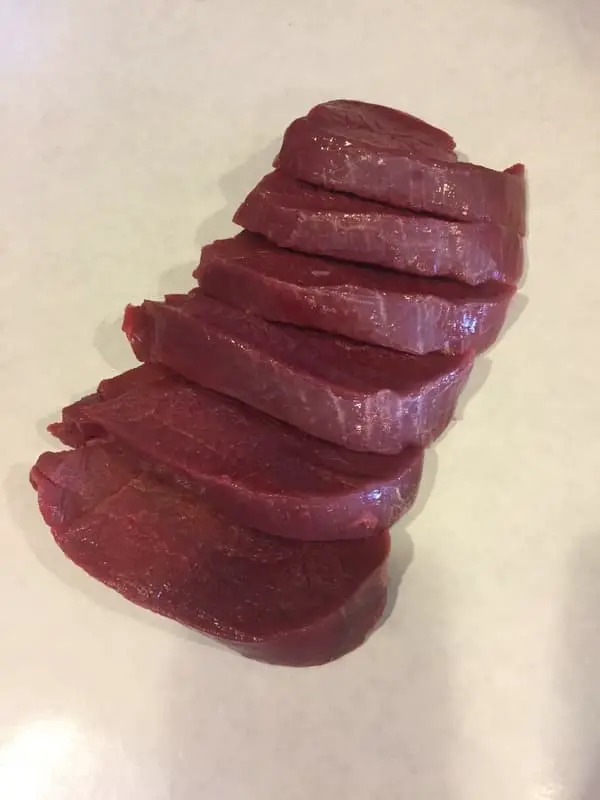
Or, you may notice white, green, or even orange patches in the meat. They appear when bacteria and molds grow on the meat.
If you notice such changes in your deer meat, discard it as it has probably gone bad.
(Note, this does not apply if you are ‘dry-aging’ your deer meat in a controlled environment. In that case, it is normal for a discolored crust to appear on the exterior of the meat, and should be removed before cooking).
How It Feels to the Touch
Deer meat is smooth and slightly damp when fresh. Spoiled venison, on the other hand, feels slimy or soggy to touch. It may also feel slippery. If the meat feels wet, sticky, or excessively smelly to you, then it has spoiled.
Excessive moisture or slime is never a good indicator of red meat. Have you ever purchased a nice RIbeye steak and it has been slimy or wet? No!
Use common sense and take care when handling and processing your wild game.
What Does Venison Smell Like When Cooking?
Cooked venison may have a gamey smell to those not used to wild-game meat. This can be somewhat off-putting but is no cause for alarm.
Wild venison is a very dense and lean red meat, that when cooked can have a strong mineral smell and this is perfectly normal. Many first-time venison eaters describe the smell as neither good or bad; just different from traditional red meats.
In most cases, cooked venison smells and blends with the ingredients it is cooked with. Venison works well with herbs and spices, such as dill, coriander, thyme, and lemon pepper.
However, if you smell sour, pungent, or bitterness- these are signs that the venison you are cooking may be compromised.
The Best Ways To Prevent Spoilage
Let’s take a look at the best ways to keep deer meat fresh for as long as possible.
Process The Meat With Care
Even if you process a deer and prepare it quickly, there’s still a chance that bacteria or other microorganisms can impact the quality and flavor.
Always handle and process your deer meat in a sterile environment. This doesn’t mean you need a commercial kitchen, but you can still eliminate chances of contamination by doing the following:
- Wear gloves when skinning and gutting wild game
- Keep deer cacasses elevated off the ground with a skinning gambrel
- Use stainless steel knives and tools, and wash them regularly
Once you’re done, be sure to wash all dishes, utensils, work surfaces, and your hands with soap and hot water after touching the deer meat. You should also sterilize your tools before using them to cut other food items or other game animals.
Keep the Meat Cold
One of the best ways to keep venison fresh is keeping it in a cold environment such as a refrigerator.
Putting venison meat on ice or directly into the freezer is also fine. You need to monitor this closely if you don’t eat it within 3-5 days.
Note: Do not put fresh venison in a cooler full of ice water! I hate it when hunters do this, yuck! Water and raw meat do not mix- this is a haven for bacteria!
Instead, keep your cooler drain open so that water can drain out while keeping nice big ice chunks to keep the meat cool.
When freezing deer meat, make sure to wrap it tightly in a water-resistant material (such as freezer paper) before putting it in the freezer.
See Also: Can You Refreeze Venison After Its Thawed Out?
Long Term Preservation
Venison is traditional wild meat that is extremely healthy and delicious. But with deer hunting seasons so short, many hunters look for ways to preserve venison year-round.
Canned Vension
If you want to keep venison for a longer time, you can try canning it. Canning venison requires a pressure canner and special jars designed for this purpose. If done right, though, you’ll have good quality venison that stays fresh for months on end.
Here’s a YouTube video that explains how to can deer meat:
Dehydrated Venison (Jerky)
Another popular way to preserve venison long-term is to dehydrate your venison and make Jerky. This typically requires a dehydrator but is very easy to do even for beginners.
Many hunters experiment with mixing different brines and spices, to create the ultimate jerky recipe. Once, complete deer jerky can last as long as a month by itself, and up to 6 months in a refrigerator or cool environment.
Smoked Venison
Smoked venison is another favorite among hunters. Sausages and venison snack sticks are the most common preparation methods.
Although it does not last as long as canning or dehydrating, snack sticks and sausages offer a great alternative to fresh venison and are delicious.
How To Dispose of Spoiled Venison Safely in 3 Easy Steps
If, when you inspect your venison, it’s spoiled, or you suspect it’s gone bad, here are some tips on how to discard the meat safely.
1. Wrap It in a Garbage Bag
Wear gloves while handling spoiled venison, as this will protect your hands from contact with any harmful bacteria present in the meat. After covering your hands, wrap up the deer meat in the garbage bag to avoid contaminating any other food items that may be present in your home.
2. Discard the Garbage Bag
Throw out the garbage bag containing spoiled venison as soon as possible. Bury it deep in the garbage can to avoid further chances of contamination, or else burn it if you can do so safely.
If you can’t get rid of the garbage bag safely, put it in a tightly sealed box and dispose of it later.
3. Clean Your Hands and Kitchen
Clean your hands and the kitchen thoroughly with soap before cooking anything else.
Use a disinfectant to clean any surfaces that may have come into contact with venison. It’s best if you use an antibacterial cleaning product. If possible, use a different cutting board for meat and vegetables.
FAQs
What Happens if I Eat Bad Venison?
Eating bad venison can cause food poisoning, which can show through symptoms like diarrhea, nausea, vomiting, abdominal pain, and dehydration.
Because of that, even when you notice that your deer meat has gone bad, don’t taste it to find out whether it’s safe to eat. You’ll want to dispose of it immediately and be on the safe side.
Why Does My Deer Stink?
If your deer stinks, it may be spoiled. This is because harmful bacteria have already started to break down the meat, releasing chemicals with pungent smells.
Some of the common causes of venison spoilage include:
- Contamination during the slaughtering process.
- Improper storage of meat at home or in transit.
- Failure to clean and properly maintain knives and tools used to cut the meat.
- Infection in the deer itself, such as a wound or illness.
What Does Game Meat Smell Like?
Game meats tend to have a stronger, gamier smell than their domesticated cousins. Notably, they don’t smell like beef or lamb. Similar to venison, fresh game meats usually have a subtle earthy smell.
Does Deer Meat Smell Different Than Beef?
Generally, deer meats have a stronger taste and smell than beef. Also, venison is more likely to have a gamey flavor as well. Deer meat is much denser and darker in color than beef due to its low-fat content.
How Long Is Venison Good in Fridge?
Typically, fresh venison can last for up to 4 days when stored properly in the refrigerator. However, uncured, frozen venison can last up to 4 months. Conversely, cured or roasted deer meat can last up to 12 months if frozen.
Conclusion
Remember, just because something smells ‘gamey’ does not mean that it is spoiled or unsafe to eat.
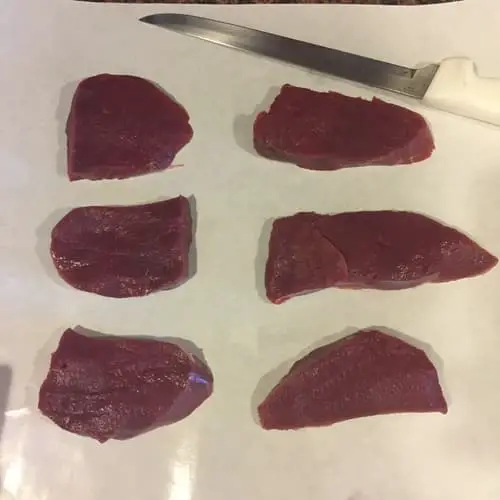
After all, venison is a wild game animal and it should not smell the same as processed and farm-raised beef.
The best method to detect venison spoilage is to use your human senses: Smell, sight, and touch! Trust your instincts.
Lastly, always take care when handling and processing your game animals. After putting so much time and effort into a successful hunt, don’t cut yourself short on meat preparation. You owe it to yourself, and we owe it to the wild game we pursue.
Thanks for reading.
You May Also Like: How Much Pork Should You Mix WIth Ground Venison?
- Neem Oil Deer Repellent: Does It Really Work?

- Is It Okay To Burn Bark In a Wood Stove?
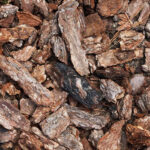
- Do Deer Eat Morel Mushrooms?
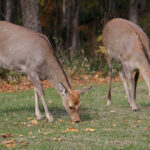
- How To Properly Dispose of Wood Stove Ashes (Safely!)
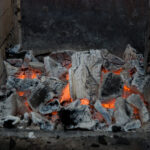
- Is Fatwood Safe for Wood Stoves? Here’s What You Should Know
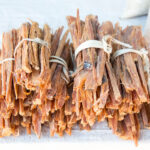
- Is Beaver Good to Eat? You May Be Surprised!
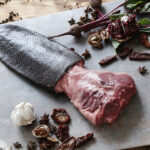
- Is Bread Bad For Deer? Here’s What You Should Know
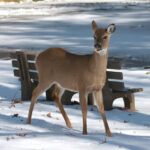
- Are Roosters Good to Eat?
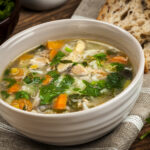
- 3 Easy Ways To Tell If Your Wood Stove Is Leaking
